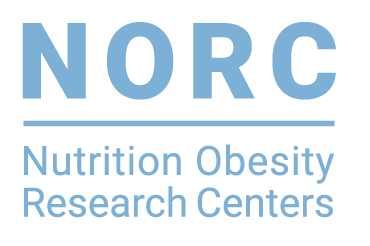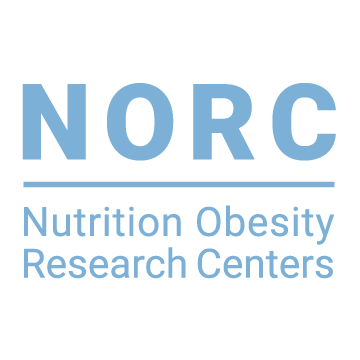Category: Publications
Maximal Oxidative Capacity During Exercise is Associated with Skeletal Muscle Fuel Selection and Dynamic Changes in Mitochondrial Protein Acetylation
Abstract Maximal exercise-associated oxidative capacity is strongly correlated with health and longevity in humans. Rats selectively bred for high running capacity (HCR) have improved metabolic health and are longer-lived than their low-capacity counterparts (LCR). Using metabolomic and proteomic profiling, we show that HCR efficiently oxidize fatty acids (FAs) and branched-chain amino acids (BCAAs), sparing glycogen and reducing accumulation of short- and medium-chain acylcarnitines. HCR mitochondria have reduced acetylation of mitochondrial proteins within oxidative pathways at rest, and there is rapid protein deacetylation with exercise, which is greater in HCR than LCR. Fluxomic analysis of valine degradation with exercise demonstrates a … Read More »
Categories: Publications Tags: University of MichiganPlasma Biomarker of Dietary Phytosterol Intake
Abstract Dietary phytosterols, plant sterols structurally similar to cholesterol, reduce intestinal cholesterol absorption and have many other potentially beneficial biological effects in humans. Due to limited information on phytosterol levels in foods, however, it is difficult to quantify habitual dietary phytosterol intake (DPI). Therefore, we sought to identify a plasma biomarker of DPI. Citation Lin X, Racette SB, Ma L, Wallendorf M, Spearie CA, Ostlund RE Jr. Plasma biomarker of dietary phytosterol intake. PLoS One. 2015 Feb 10;10(2):e0116912. PMID: 25668184; PMCID: PMC4323197. Read More: PLoS One Research Details Research Center: Washington University, St. Louis
Categories: Publications Tags: Washington University St. LouisTAS2R Bitter Taste Receptors Regulate Thyroid Function
Abstract Dysregulation of thyroid hormones triiodothyronine and thyroxine (T3/T4) can impact metabolism, body composition, and development. Thus, it is critical to identify novel mechanisms that impact T3/T4 production. We found that type 2 taste receptors (TAS2Rs), which are activated by bitter-tasting compounds such as those found in many foods and pharmaceuticals, negatively regulate thyroid-stimulating hormone (TSH)-dependent Ca2+ increases and TSH-dependent iodide efflux in thyrocytes. A common TAS2R42 polymorphism is associated with increased serum T4 levels in a human cohort. Key Findings Our findings indicate that TAS2Rs couple the detection of bitter-tasting compounds to changes in thyrocyte function and T3/T4 production. … Read More »
Categories: Publications Tags: Mid-Atlantic MarylandPeroxisomal Lipid Synthesis Regulates Inflammation by Sustaining Neutrophil Membrane Phospholipid Composition and Viability
Abstract Fatty acid synthase (FAS) is altered in metabolic disorders and cancer. Conventional FAS null mice die in utero so effects of whole body inhibition of lipogenesis following development are unknown. Inducible global knockout of FAS (iFASKO) in mice was lethal due to a disrupted intestinal barrier and leukopenia. Conditional loss of FAS was associated with the selective suppression of granulopoiesis without disrupting granulocytic differentiation. Transplantation of iFASKO bone marrow into wild type mice followed by Cre induction resulted in selective neutrophil depletion but not death. Impaired lipogenesis increased ER stress and apoptosis in neutrophils by preferentially decreasing peroxisome-derived membrane … Read More »
Categories: Publications Tags: Washington University St. LouisThe Effect of Eight Weeks of Overfeeding on Ectopic Fat Deposition and Insulin Sensitivity
Abstract The presence of large subcutaneous adipocytes in obesity has been proposed to be linked with insulin resistance and type 2 diabetes through the “adipose tissue expandability” hypothesis, which holds that large adipocytes have a limited capacity for expansion, forcing lipids to be stored in nonadipose ectopic depots (skeletal muscle, liver), where they interfere with insulin signaling. This hypothesis has, however, been largely formulated by cross-sectional findings and to date has not been prospectively demonstrated in the development of insulin resistance in humans. Key Findings Subjects gained 7.6 +/- 2.1 kg (55% fat) and insulin sensitivity decreased 18% (P<0.001) after … Read More »
Categories: Publications Tags: Pennington Biomedical Research CenterAlphalinolenic Acid (ALA) is Inversely Related to Development of Adiposity in School-Age Children
Abstract Studies in adults indicate that dietary polyunsaturated fatty acid (PUFA) composition may play a role in development of adiposity. Because adipocyte quantity is established between late childhood and early adolescence, understanding the impact of PUFAs on weight gain during the school-age years is crucial to developing effective interventions. Citation Perng W, Villamor E, Mora-Plazas M, Marin C, Baylin A. Alphalinolenic acid (ALA) is inversely related to development of adiposity in school-age children. Eur J Clin Nutr. 2015 Feb;69(2):167-72. PMID: 25271016; PMCID: PMC4648352. Read More: European Journal of Clinical Nutrition Research Details Research Center: University of Michigan
Categories: Publications Tags: University of MichiganAdherence to Healthy Lifestyle and Risk of Gestational Diabetes Mellitus: A Prospective Cohort Study
Abstract This prospective cohort study suggests that adherence to a low risk lifestyle before pregnancy is associated with a low risk of gestational diabetes and could be an effective strategy for the prevention of gestational diabetes. Key Findings Adherence to a low risk lifestyle before pregnancy is associated with a low risk of gestational diabetes and could be an effective strategy for the prevention of gestational diabetes. Citation Zhang C, Tobias DK, Chavarro JE, Bao W, Wang D, Ley SH, Hu FB. Adherence to healthy lifestyle and risk of gestational diabetes mellitus: prospective cohort study. BMJ. 2014 Sep 30;349:g5450. PMID: … Read More »
Categories: Publications Tags: BostonFGF21 is an Endocrine Signal of Protein Restriction
Abstract Enhanced fibroblast growth factor 21 (FGF21) production and circulation has been linked to the metabolic adaptation to starvation. We show that circulating FGF21 levels are increased by dietary protein restriction, but not energy restriction, via a mechanism that includes activation of the eIF2α kinase general control nonderepressible 2 (GCN2). While protein restriction altered food intake, energy expenditure, and body weight gain in wildtype mice, FGF21-deficient animals did not exhibit these changes in response to a LP diet. These data demonstrate that reduced protein intake underlies the increase in circulating FGF21 in response to starvation, and that FGF21 is an … Read More »
Categories: Publications Tags: Pennington Biomedical Research CenterChanges in Body Weight and Health-Related Quality of Life: 2 Cohorts of US Women
Abstract This study followed 52,682 women aged 46–71 years in the Nurses’ Health Study (in 1992–2000) and 52,587 women aged 29–46 years in the Nurses’ Health Study II (in 1993–2001). Body weight was self-reported, Health-related quality of life (HRQoL) was measured by the Medical Outcomes Study’s 36-Item Short Form Health Survey, and both were updated every 4 years. The relationship between changes in weight and HRQoL scores was evaluated at 4-year intervals by using a generalized linear regression model with multivariate adjustment for baseline age, ethnicity, menopausal status, and changes in comorbidities and lifestyle factors. Key Findings Weight gain of … Read More »
Categories: Publications Tags: BostonIRF4 is a Key Thermogenic Transcriptional Partner of PGC-1a
Abstract Brown fat can reduce obesity through the dissipation of calories as heat. Control of thermogenic gene expression occurs via the induction of various coactivators, most notably PGC-1α. In contrast, the transcription factor partner(s) of these cofactors are poorly described. Here, we identify interferon regulatory factor 4 (IRF4) as a dominant transcriptional effector of thermogenesis. IRF4 is induced by cold and cAMP in adipocytes and is sufficient to promote increased thermogenic gene expression, energy expenditure, and cold tolerance. Conversely, knockout of IRF4 in UCP1(+) cells causes reduced thermogenic gene expression and energy expenditure, obesity, and cold intolerance. IRF4 also induces … Read More »
Categories: Publications Tags: Boston
